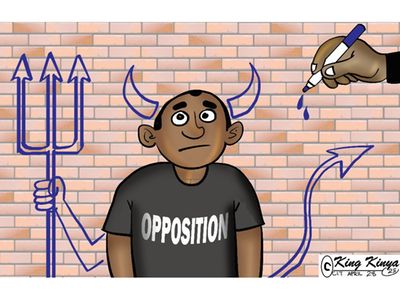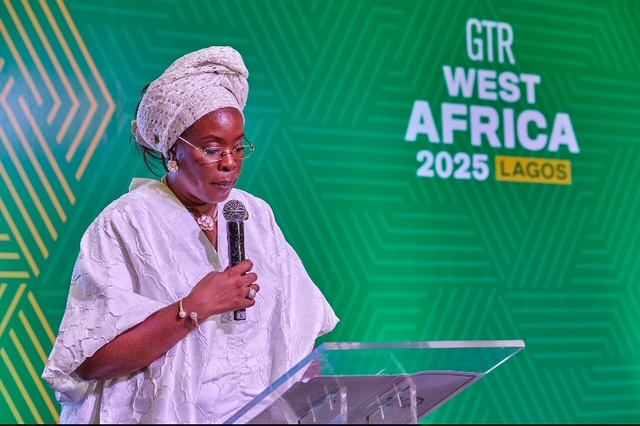Nana Yaw Amoah Amofa, the whistleblower at the centre of a drug peddling case, allegedly covered up by the Food and Drugs Authority (FDA) and the Ghana Police Service, has pointed out flaws in the FDA boss’s rejoinder.
He issued a scathing response to a recent rejoinder by the FDA’s Chief Executive Officer, Dr Delese A. A. Darko, describing the authority’s handling of a drug trafficking case involving Florence Aba Dadzie, as lacklustre and deeply troubling.
In the rejoinder, the FDA, revealed that it had handed over a case involving unregistered and unlicensed products — including serum, organic hemp powder, and CBD — sold via Instagram to the Nima Police.
However, Mr Amoah, who first brought the matter to public attention, said the FDA’s rejoinder, was intended to clarify the situation but only served to validate his original claims.
According to him, the letter confirms that Ms Dadzie, was indeed engaged in criminal conduct, leading to her arrest as far back as January 2020.
However, he questioned why, more than five years later, there has been no prosecution, public update, or media report on the matter.
“This letter from the FDA CEO is basically confirming what I said,” Mr Amoah stated.
“It appears they want to shift responsibility for prosecuting the matter to the police. This leaves a lot to be desired, in my humble view.”
He criticised the FDA’s “five-year silence” on the issue, expressing disbelief that such a serious allegation could go unreported and unprosecuted for so long.
“Please, how can this be normal practice?” he asked.
“I have seen prosecutions and media coverage for far lesser offences. Is it not curious that this lady is being given such preferential treatment?”
Mr Amoah, also raised concerns about the substances in question, noting that the organic hemp and Cannabidiol (CBD) products referenced in the FDA’s rejoinder are derivatives of cannabis and, in his view, more dangerous than many opioids currently fuelling Ghana’s growing drug problem.
He warned that the FDA’s handling of the issue, coupled with what he sees as police inaction, may be contributing to the opioid crisis in the country.
“Why must the current government inherit an opioid crisis caused by the impunity and lawlessness of the previous government?” he questioned.
Mr Amoah, alleged that after Ms Dadzie’s initial arrest, she continued to engage in illegal drug trafficking, albeit in a more discreet manner. He further claimed that she has been shielded from prosecution by a senior police officer, Superintendent Ransford Appiakorang, whom he identified as her uncle.
He also took issue with the FDA CEO’s request for a rejoinder, stating:
“I can’t fathom if it makes a difference. The fact is they were silent about this serious matter for all this while.”
According to Mr Amoah, an FDA officer ,who worked on the case, Mr Vigil, had earlier informed him that the matter was indeed prosecutable and could serve as a deterrent to others.
Yet, he lamented, five years on, the FDA now claims the police are still investigating and that the evidence remains in their possession.
In a follow-up clarification, Mr Amoah, pointed out a factual error in the FDA’s rejoinder. The suspect’s name was incorrectly listed as “Florence Ama Dadzie” instead of the correct “Florence Aba Dadzie.” He cited this as yet another example of the FDA’s lack of seriousness regarding the matter.
He further clarified that a product mentioned in the rejoinder — the “Vaginne” feminine product — had no connection to Ms Dadzie or the illegal drug trafficking case.
“My petition was very specific regarding Florence Aba Dadzie indulging in illegal drug trafficking,” he said. “The Vaginne product is a red herring.”
The whistleblower’s remarks raise renewed questions about institutional accountability, regulatory enforcement, and the influence of personal connections within Ghana’s public sector. As public concern increases regarding the country’s handling of illicit drugs, calls for transparency and prosecution in this case are expected to intensify.
In a detailed petition dated February 3, 2025, sent to the Operation Recover All Loot (ORAL) Team and made available to The Herald, Mr Amofa, recounts that in January 2020, he discovered one Florence Aba Dadzie actively advertising and selling banned substances, including Indian hemp and cannabidiol (CBD), on social media.
He reported the matter to the Food and Drugs Authority (FDA) and the Drug Law Enforcement Unit of the Police CID, leading to Ms Dadzie’s arrest.
“Florence Aba Dadzie was arrested red-handed, and it was confirmed she had no licence or authorisation to engage in such activity,” Mr Amofa stated. However, he lamented that despite the apparent weight of the evidence, Ms Dadzie was released on bail and has yet to face prosecution.
The whistleblower, believes he has since become the target of a revenge campaign after Ms Dadzie, allegedly discovered that he was behind the report that led to her arrest.
Mr Amofa, claims that her uncle, Mr Ransford Appiakorang, a police officer based at the Police Headquarters, leveraged his influence within the service and former government connections to shield his niece from legal consequences and orchestrate a campaign of intimidation against him.
According to Mr Amofa, in February 2021, Mr Basiru Abdul-Rahaman summoned him to the Nima Police Station, following a report filed by Ms Dadzie, claiming that he had threatened her—an allegation he insists was entirely fabricated.
He further described how, after giving his statement, he was compelled to report again the following day. “When I arrived, Mr Rahaman, told me he had instructions to take me to the Police Headquarters. He put me on the back of his personal motorbike—without a helmet—and drove me there himself,” he recounted. “This was not only unprofessional, but a grave danger to my life.”
At the Police Headquarters, Mr Amofa was taken to Mr Appiakorang’s office, where he claims he was pressured into signing an undertaking not to contact Ms Dadzie, while paradoxically being instructed to apologise for reporting her.
Following that meeting, Mr Amofa, alleges that Ms Dadzie began a campaign of harassment against him and his mother, backed by threats from her alleged allies. “Despite acting within the law under the Whistleblower Act (Act 720), I am the one facing threats, harassment and fear for my safety,” he wrote.
In a further troubling twist, Mr Amofa, revealed that the original investigator on the drug case, one Mr Affram, had been replaced by Mr Rahaman, raising concerns about procedural irregularities and potential conflict of interest. “I question whether it is standard practice for officers not initially assigned to a case to later take over, especially in a situation riddled with such clear bias,” he said.
He has called on the authorities to assign a neutral public official to review the matter and conduct an impartial investigation. “I am traumatised and fearful for my life,” he said. “The person who reported a crime is being punished, while the person allegedly engaged in criminal activity is being protected.”
Mr Amofa, also revealed that he has received threats from Ms Dadzie in the past, including warnings that she would “unleash thugs” on him.
He has expressed readiness to provide evidence to support his claims and assist in any investigation.
The post Whistleblower exposes flaws in FDA’s response to drug peddling scandal appeared first on The Herald ghana.








